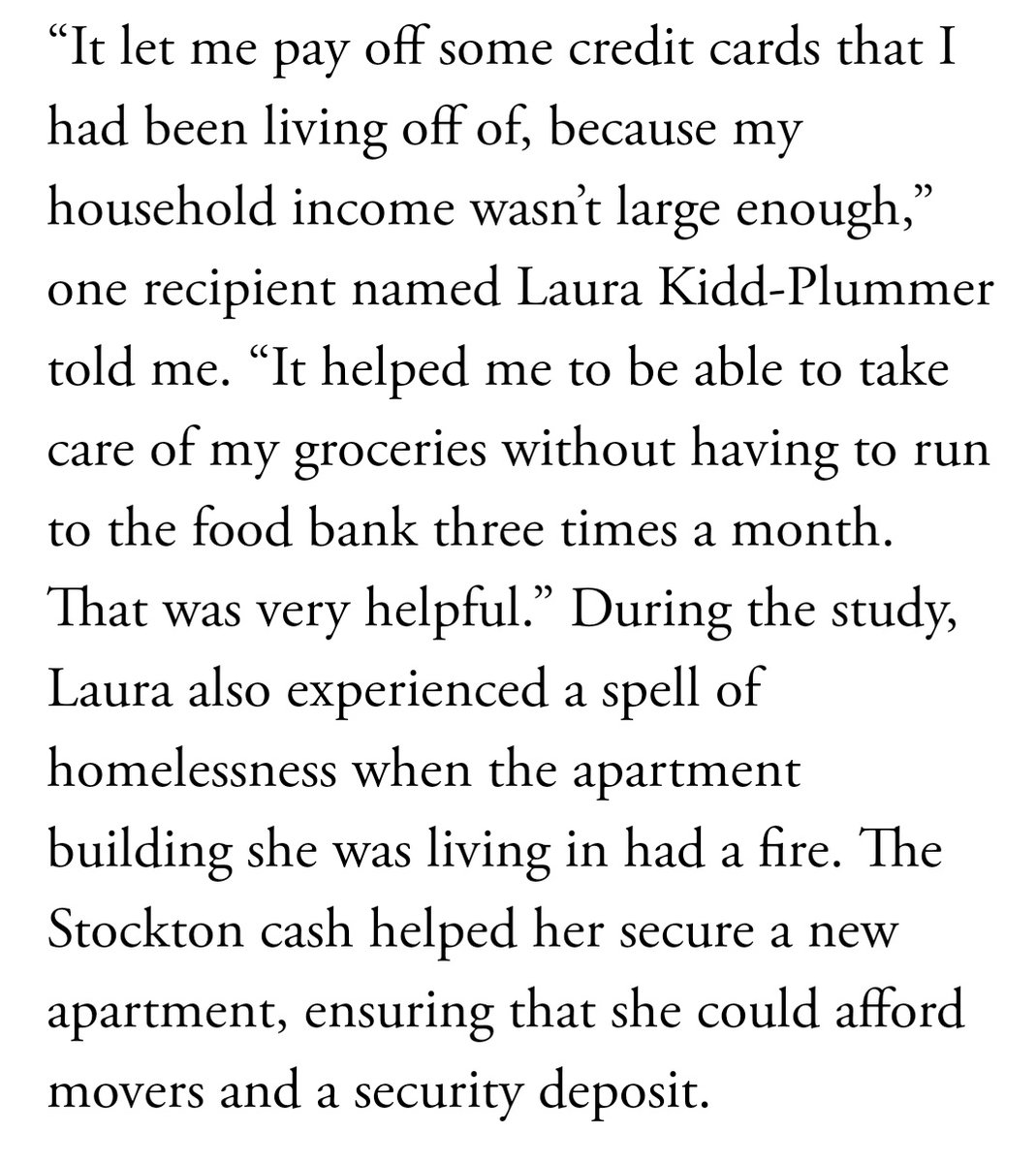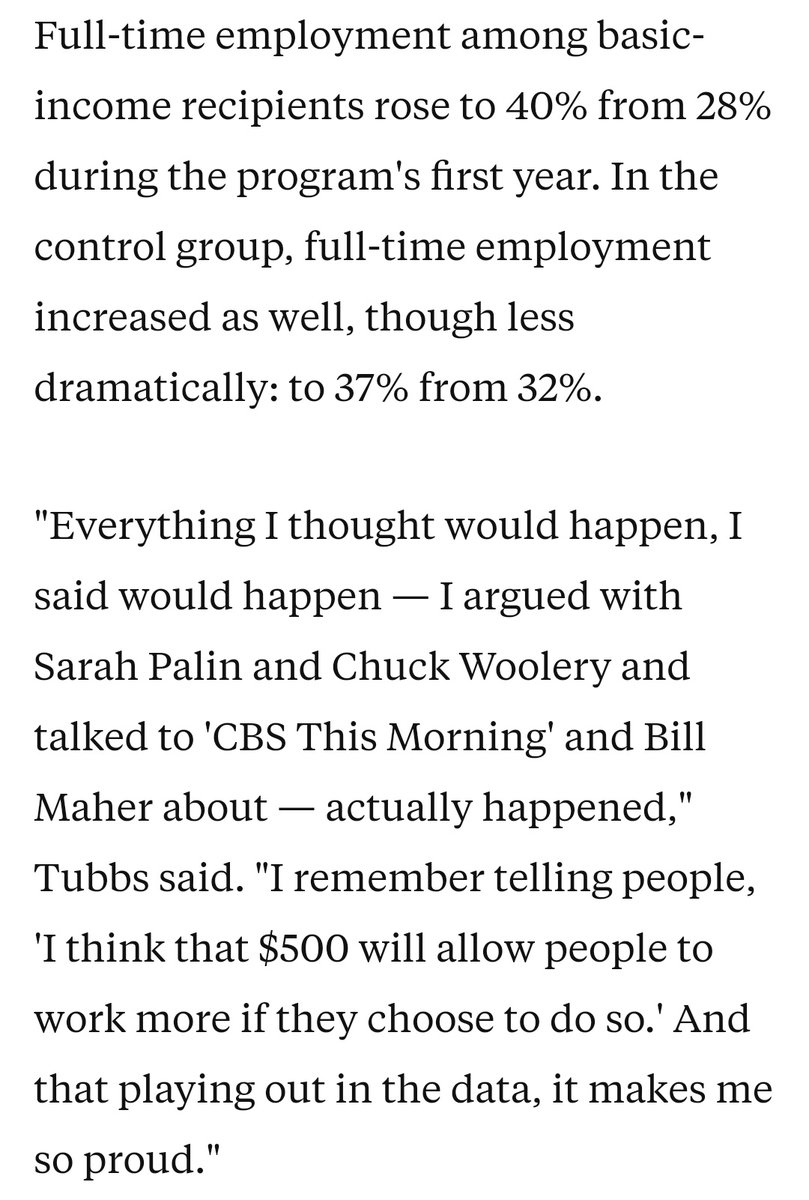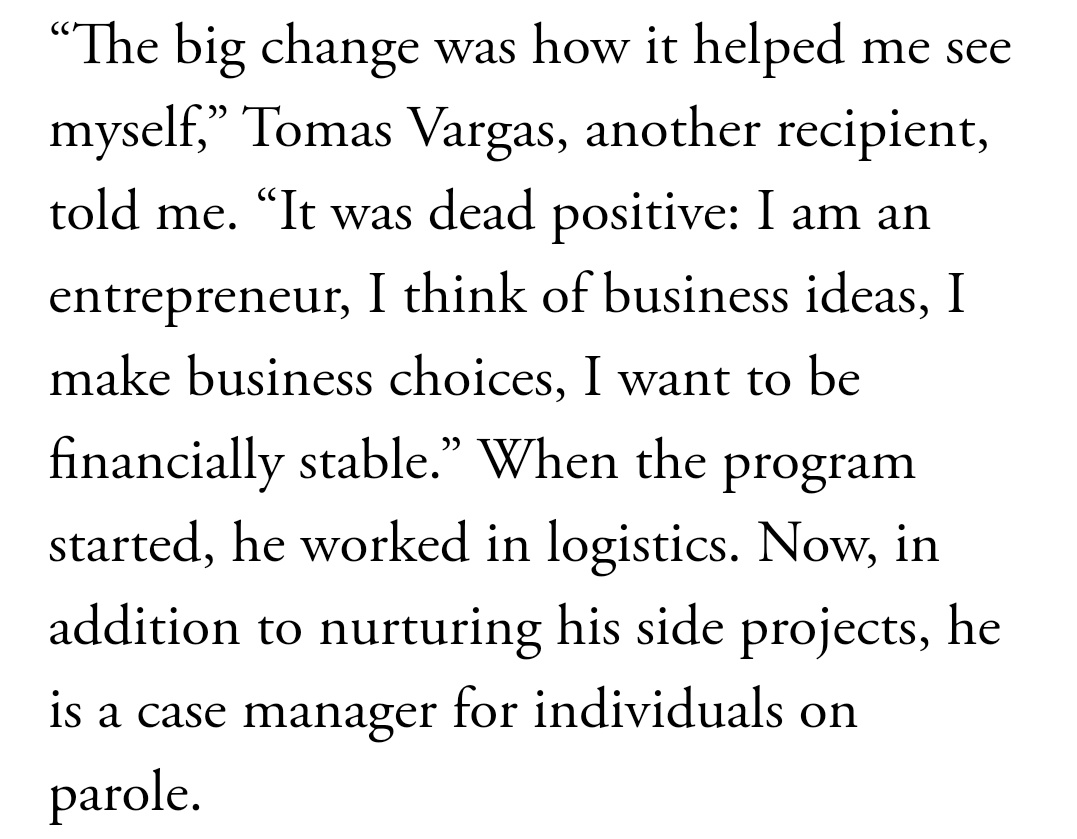
The results of the basic income experiment in Stockton are in.
BASIC INCOME WORKS.
✅More full-time employment
✅Income stability increased
✅It was mostly spent on essentials
✅Debts were reduced
✅Mental health improved
✅Helped family and friends too
theatlantic.com/ideas/archive/…



BASIC INCOME WORKS.
✅More full-time employment
✅Income stability increased
✅It was mostly spent on essentials
✅Debts were reduced
✅Mental health improved
✅Helped family and friends too
theatlantic.com/ideas/archive/…




"Unemployment among basic income recipients dropped to 8% in February 2020 from 12% in February 2019. In the experiment's control group — those who didn't receive monthly stipends — unemployment rose to 15% from 14%."
Lack of income PREVENTS employment.
businessinsider.com/stockton-basic…

Lack of income PREVENTS employment.
businessinsider.com/stockton-basic…


Important to note the difference between increased employment and reduced unemployment. People without jobs were able to get them, but also, people with jobs were able to get better jobs.
Basic income helped recipients afford the costs of better jobs.
mashable.com/article/univer…
Basic income helped recipients afford the costs of better jobs.
mashable.com/article/univer…

One recipient in particular paints a very clear picture of the effect of basic income on work. For Tomas Vargas, it meant being able to focus more on side projects, helping people on parole, and getting more engaged civically and politically.
UBI *activates* people to do more.

UBI *activates* people to do more.


I also just want to mention a couple anecdotes from recipients that stuck with me. One was how someone was able to get a tux for a wedding. Another was how a woman was able to pay off her wedding ring.
People ask what UBI is. The answer is stuff like this. It's about HUMAN LIFE.
People ask what UBI is. The answer is stuff like this. It's about HUMAN LIFE.

I know that someday we will achieve UBI, but I just hate that we won't do it RIGHT NOW, in the midst of a pandemic when we need it most. I hate that we know it works, but that we still have to fight for it. The Stockton data is new, but it joins a pile.👇
https://twitter.com/scottsantens/status/1040683616488103936?s=19
• • •
Missing some Tweet in this thread? You can try to
force a refresh




